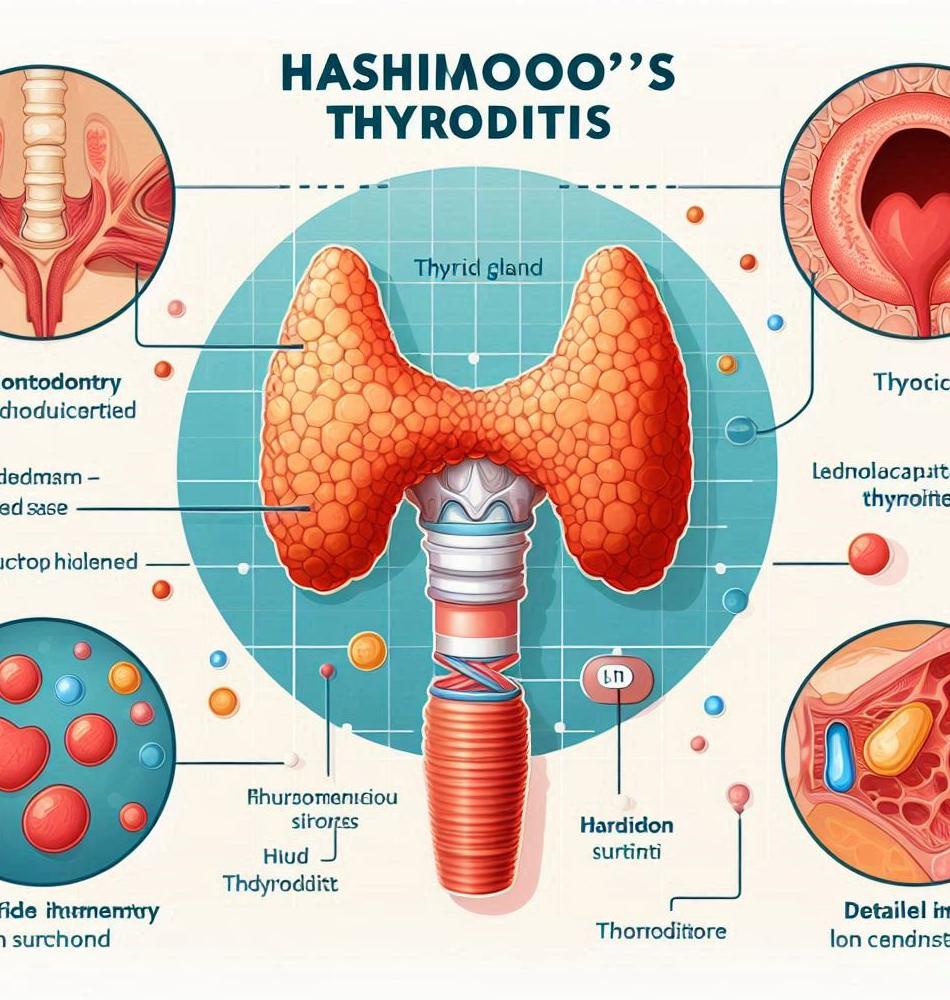Unlocking Hashimoto's Disease Diagnosis 🔍
Hashimoto's disease is a complex autoimmune disorder that often flies under the radar. Many people suffer from fatigue, weight gain, and a host of other symptoms without ever connecting them to this underdiagnosed condition. Understanding how Hashimoto's disease is diagnosed is crucial for those who suspect they might be affected. In this article, we dive deep into the diagnostic process, exploring the various tests and indicators that lead to an accurate diagnosis.
Understanding Hashimoto's Disease 🌼
Hashimoto's disease arises when the immune system mistakenly attacks the thyroid gland. This can lead to hypothyroidism, causing the thyroid to underperform. So what are the signs that may indicate the presence of this condition? Let’s take a look at some essential symptoms:
- Fatigue and extreme tiredness
- Weight gain or difficulty losing weight
- Cold intolerance
- Dry skin and hair
- Muscle weakness
- Depression or mood changes
- Constipation
- Joint pain or stiffness
- Menstrual irregularities
Initial Consultation and Medical History 📋
The journey to diagnose Hashimoto's disease often begins with a thorough consultation with a healthcare provider. They will take a detailed medical history, asking about symptoms, family history, and any previous thyroid-related issues. This initial conversation is critical in pinpointing potential red flags.
Key Questions to Expect During the Consultation 🕵️♂️
During the meeting, a doctor may ask questions like:
- When did your symptoms begin?
- Do you have any family history of autoimmune diseases?
- Have you experienced any changes in weight or energy levels?
- What medications are you currently taking?
- Have you ever been diagnosed with another thyroid condition?
Honesty and detail are vital at this stage as they provide essential clues for the diagnosis. The medical history often informs the next steps in the diagnostic process.
Physical Examination: What to Expect 🔍
After discussing medical history, the doctor usually performs a physical examination. They will typically focus on signs of thyroid disease, which may include:
- Swelling or enlargement of the thyroid gland, known as a goiter
- Changes in skin texture or temperature
- Reflexes and muscle strength evaluation
- General energy levels and alertness
Diagnostic Tests: Blood Work and Beyond 🔬
If Hashimoto's disease is suspected, the doctor will likely recommend blood tests to measure thyroid hormone levels and detect specific antibodies in the blood. The most common tests include:
- TSH Test: Measures TSH levels to assess thyroid function.
- T4 Test: Determines the levels of thyroxine present in the body.
- Thyroid Antibody Tests: Tests for antibodies such as anti-TPO (thyroid peroxidase) and anti-thyroglobulin.
Importance of Thyroid Antibody Tests 🔑
The presence of elevated thyroid antibodies is a hallmark of Hashimoto's disease. Elevated levels indicate an autoimmune response against the thyroid gland, reinforcing the diagnosis.
Additional Diagnostic Steps 📈
In some cases, doctors may recommend further tests to gain a clearer understanding of the thyroid's condition. These may include:
- Thyroid Ultrasound: Imaging tests can check for abnormalities or nodules on the thyroid.
- Radioactive Iodine Uptake Test: This test gauges how efficiently the thyroid absorbs iodine, which is essential for hormone production.
Interpreting Test Results 📝
The interpretation of test results is a specialized skill. A healthcare provider will evaluate each test's findings together to establish a comprehensive picture of thyroid health:
- A high TSH level typically indicates hypothyroidism.
- Low levels of T4 can signal that the thyroid is underactive.
- The presence of antibodies confirms Hashimoto's disease.
Common Questions About Hashimoto's Disease Diagnosis ❓
- What are the early signs of Hashimoto's disease?
- Can Hashimoto's disease be diagnosed with a single test?
- Is Hashimoto's disease hereditary?
- How do doctors differentiate between Hashimoto's and other thyroid disorders?
- What steps can be taken if I am diagnosed with Hashimoto's disease?
Potential Challenges in Diagnosis 🚧
Diagnosing Hashimoto's disease can present unique challenges:
- Symptoms often mimic other conditions, leading to misdiagnosis.
- Some individuals may have mild symptoms or develop the disease gradually.
- The presence of multiple autoimmune conditions can complicate the assessment.
How to Advocate for Yourself 🗣️
If you suspect you may have Hashimoto's disease, being proactive is essential. Consider:
- Keeping a journal of your symptoms and changes in health.
- Asking targeted questions during medical visits.
- Seeking feedback from healthcare professionals when initial evaluations come back inconclusive.
Conclusion: The Path to Diagnosis 🛤️
Diagnosing Hashimoto's disease is a multi-faceted process that involves a keen eye, thorough discussions, and various tests. Being aware of the symptoms and understanding the diagnostic journey can empower individuals to seek assistance sooner. Once diagnosed, appropriate treatment can enable individuals with Hashimoto's disease to lead healthy, fulfilling lives. Remember, if you suspect Hashimoto's disease, don't hesitate to speak with a healthcare provider. A journey of a thousand miles begins with a single step.
.png)






